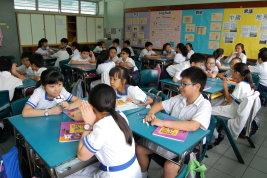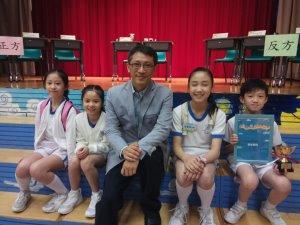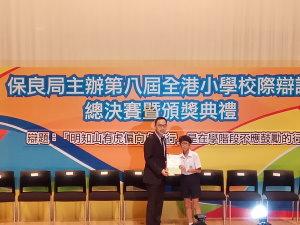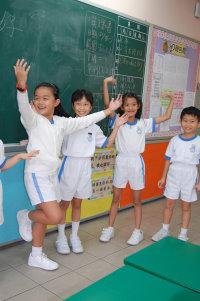- Home
- >
- Features of Chinese
Features of Chinese
| Curriculum Planning for Primary 1~6 Students: |
| In terms of curriculum planning, we will continue to provide student-centered education to primary 1~6 students, allowing them to participate in classroom activities, interact with each other, and engage in group learning so that they will have better control of their own learning patterns. In terms of curriculum arrangements, we will develop a school-based vertically-aligned curriculum for primary 1~6 students in accordance with the recommendations of the Education Bureau. We hope that our students are able to acquire the following skills through the new curriculum: |
| - The ability to use language and master standard written language; - The ability to feel, appreciate, and create the beauty of language, thereby arousing their interest in language learning. - The ability to develop thinking skills of high quality. - The ability to receive moral education under cultural influence, thereby beautifying their personality and enhancing their whole person development. |
| Drama Education: |
By adopting the teaching strategies of drama education, we allow our students to experience the context of the text, improve their ability to comprehend the text, and improve their creativity and communication skills. By constructing, exchanging, and interpreting the context together, our students acquire a sense of achievement, thereby arousing their interest in learning and motivating them to engage deeply in their study. |
| Self-learning and Complex-level Thinking Skills: |
In order to inspire our students to engage in self-learning, classroom discussion, and sharing sessions, we have optimized the pre-study plan for the Chinese subject at all levels, so that our students are better able to take part in classroom activities after pre-class preview. By taking notes in class, our students also improve their self-learning abilities significantly. Complex-level thinking skills: Our students mainly improve their complex-level thinking skills through the 4 F's of active reviewing, 13 hot skills, and 6 thinking hats. |
| Production of school-based book guide materials: |
Reading is the foundation of all learning. In terms of Chinese learning, reading excellent literary works can effectively improve our students' sense of beauty, evaluation, and critical thinking skills. Therefore, the benefits of reading excellent literary works are self-evident. The purpose of our school to compile this set of book guide reading class: |
In order to improve our students' mastery of their mother tongue, our school introduced the strategy of "using Putonghua as the medium of instruction for teaching the Chinese language subject" as early as 1999. In line with the student-based curriculum, our school introduced the strategies of PMIC in teaching 2 classes starting from Primary 1. As of today, the number of PMIC classes has increased to 12 and is evenly distributed to grades 1~6 of our school. So far, our school will continue to work toward the direction of PMIC to catch up with the latest trend of modern society.
In order to improve our students' critical thinking skills and verbal expression, our school established a debate team in 2014 and signed up for debate competitions both inside and outside of the school.










